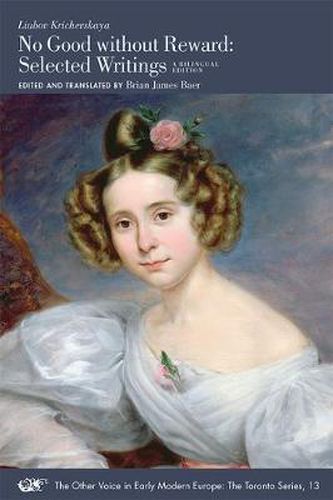Readings Newsletter
Become a Readings Member to make your shopping experience even easier.
Sign in or sign up for free!
You’re not far away from qualifying for FREE standard shipping within Australia
You’ve qualified for FREE standard shipping within Australia
The cart is loading…






A female contemporary of Alexander Pushkin, Liubov Krichevskaya makes her Anglophone debut in an excellent translation of her fiction, drama, and poetry, which deftly capture women’s estate in the early nineteenth century. Krichevskaya intriguingly combines Sentimentalist preoccupations-sensibility, virtue, and men’s moral reformation through confrontation with exemplary women’s passive piety-with the uncontrollable passions and volatile hero popularized by the Byronic strain of Romanticism. Her gynocentric texts poignantly convey the stringent limitations imposed upon women’s agency by a society that paradoxically credited them with the seemingly limitless capacity to exert a civilizing influence as icons of probity. Readers acquainted with Rousseau, Richardson, and Goethe will discover familiar feminized turf, but cultivated in a Russian vein. -Helena Goscilo Chair and Professor of Slavic, The Ohio State University
$9.00 standard shipping within Australia
FREE standard shipping within Australia for orders over $100.00
Express & International shipping calculated at checkout
A female contemporary of Alexander Pushkin, Liubov Krichevskaya makes her Anglophone debut in an excellent translation of her fiction, drama, and poetry, which deftly capture women’s estate in the early nineteenth century. Krichevskaya intriguingly combines Sentimentalist preoccupations-sensibility, virtue, and men’s moral reformation through confrontation with exemplary women’s passive piety-with the uncontrollable passions and volatile hero popularized by the Byronic strain of Romanticism. Her gynocentric texts poignantly convey the stringent limitations imposed upon women’s agency by a society that paradoxically credited them with the seemingly limitless capacity to exert a civilizing influence as icons of probity. Readers acquainted with Rousseau, Richardson, and Goethe will discover familiar feminized turf, but cultivated in a Russian vein. -Helena Goscilo Chair and Professor of Slavic, The Ohio State University